Why poppy stands as symbol of hope for blinded Leeds war hero Simon Brown
and live on Freeview channel 276
This year, for the first time, the poppy's meaning is broadened to include victims of terror. Rightly so, says the Leeds' soldier, that it honours those who had war brought to their door.
"The poppy, for me, is a symbol of hope," he says simply. "It was first a symbol of hope, before it was a symbol of remembrance.
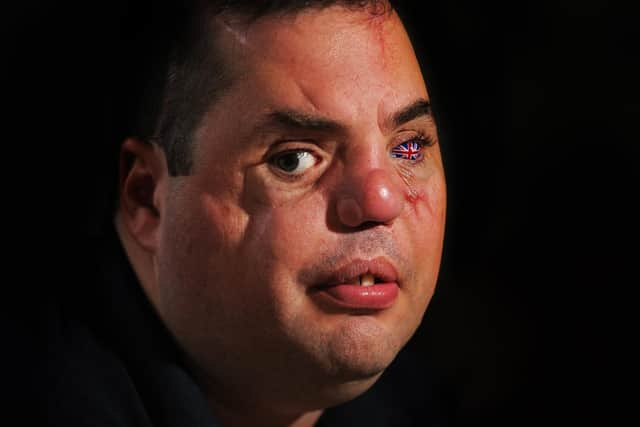

Advertisement
Hide AdAdvertisement
Hide Ad"The first thing to come back to those fields of the Somme was the poppy, thriving in the destruction. Something that brings beauty and hope in a field of devastation.
"I applaud its evolution. It takes it back to its original meaning, for all who suffered in conflict.
"Not just those who made the ultimate sacrifice, be it on the devastated fields of the Somme or the deserts of Afghanistan, but it remembers those who were going about their day to day business and someone brought war to them."
Blinded by sniper fire
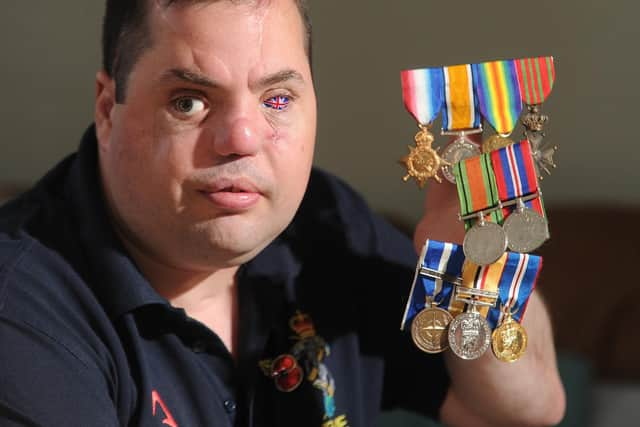

Mr Brown, having joined the Army in 1997, completed three operational tours in Kosovo and Iraq, serving as a Corporal in the Royal Electrical Mechanical Engineers.
Advertisement
Hide AdAdvertisement
Hide AdIn Basra, on December 6, 2006, his life was to be changed irrevocably. Coming to the aid of six fellow soldiers in a stranded vehicle, he was shot in the face.
The bullet, striking his left cheek, passed through his right, breaking his jaw in four places and collapsing his palate.
He was to lose his left eye, and most of the sight in his right. Placed in a drug induced coma, he was to wake 72 hours later in Birmingham with his fearful parents by his side.
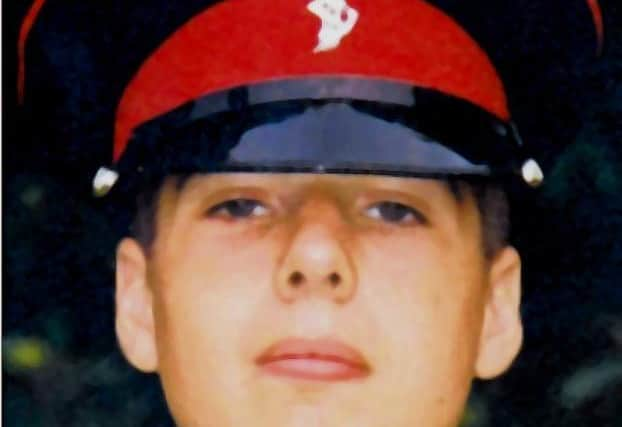

"You go to a dark place," the now 40-year-old says. "I did think about ending it. But within a couple of days, some of my colleagues had been killed.
Advertisement
Hide AdAdvertisement
Hide Ad"That was the catalyst for me, the driver in trying to find something useful to be.
"You can't live thinking about what might have happened. All you can do is take the lessons from what you learn."
Over the course of the past decade, Mr Brown has undergone 25 operations. He has partial sight in one eye, seeing much of the wider world as though it were underwater.
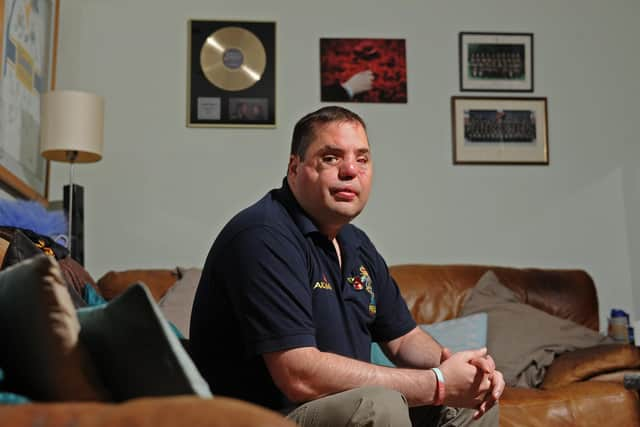

Remembrance
At his home in Morley, pictures cover the walls. His battalion, on tour in Iraq, in Kosovo. The Oath of Allegiance. A print, honouring a mentor who was lost to suicide.
Advertisement
Hide AdAdvertisement
Hide AdEvery day, with every cautious step, he remembers. A town like Morley has the strength of a community, he says, and this strength has brought him through.
A loss, be it of a soldier or a civilian, is not isolated in its impact, he adds. Every ripple creates a wave, and the greatest pain is felt not by those lost but by those left behind.
Tomorrow, he will stand at the Cenotaph at Whitehall, representing Blind Veterans UK. It is as important today as it has even been, he says, to mark that pause.
"After Kosovo, in 1999, I was spat at in the street, called a baby killer," he says. "At 20 years old, that was quite painful.
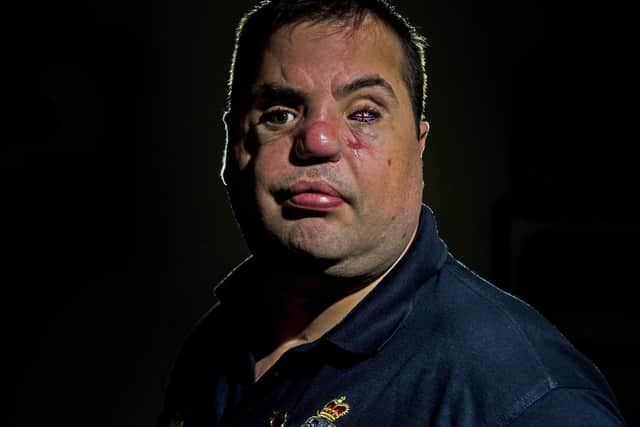

Advertisement
Hide AdAdvertisement
Hide Ad"Nowadays people stop me in the street and say 'thank you for your service'. It is humbling.
"It's still important now that we remember. If we forget the past, we are doomed to repeat the mistakes.
"And if you're a mother, standing at the war memorial because you lost a son in Afghanistan, it has to matter.
"If we stop remembering, the message we are giving is that her son's life didn't matter.
"We must remember what the poppy is. It is not about blood, and war. It's a sign of beauty and hope in destruction, and of strength.
"Something fragile, recovering after something so traumatic."
